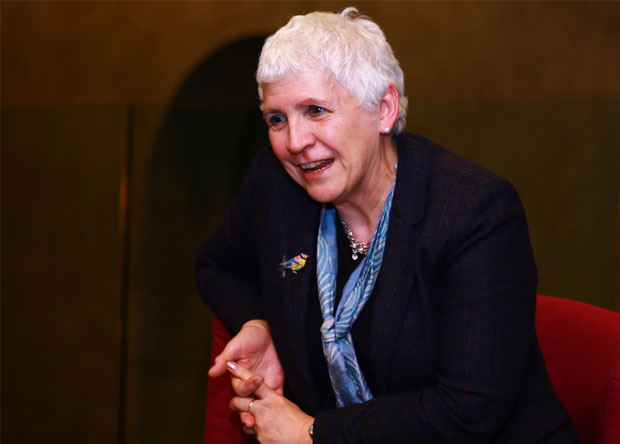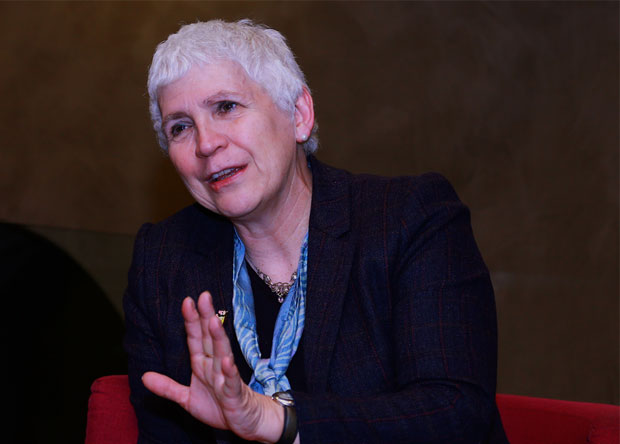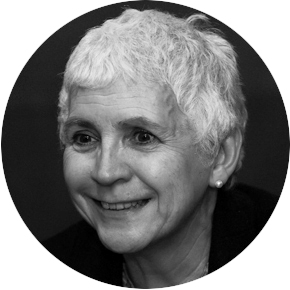This year the British Embassy in Yerevan has initiated a Chevening Guest Speaker’s project, within which Chevening alumni were encouraged to invite prominent British experts to Armenia whom they met during their studies in the UK.
Sue Wolstenholme, Former President of Chartered Institute of Public Relations, was invited to Armenia in the framework of this project. She has been working in public relations at a senior level for over twenty years. Sue has worked as a public relations consultant for Amnesty International, the Mayor of Athens (promoting environmental issues), The Campaign Against Poverty, the Child Accident Prevention Trust and BT (reviewing their sponsorship strategy).
Currently she is working with the Ukrainian government in field of Communication and PR.
Mediamax talked to Sue Wolstenholme.
- I am very impressed. I met with the master students of the American University and Yerevan State University, journalists and PR people working for the government. People, who have views and dreams and who understand how we can help them.
- What are the main concerns of PR specialists in Armenia?
- I remember this metaphor - when I am using my Apple Mac, I’m conscious of the fact that it is capable far more than I am able to use it for. I am using it as typewriter, but it could take me to the moon if only I knew the program to do that. It has much bigger brain, than I have.
I think sometimes being PR specialist in governments, you feel like Apple Mac, because they are using you as typewriter to make press releases, when in fact you can do much more. You could make relations with young people, old people, with overseas governments.
PR person is capable of many things. A lot of PR people I met here are talking to journalists all the time. Do you talk only with journalists? Don’t you try to build relationship with other groups? I think they are putting in the reactive position. They need to be more initiative. Maybe they think they need to talk exclusively to journalists, but it is far more than that. Obviously, PR people need more help strategic advice on how to better advise a minister, MP, supervisor.
 Sue Wolstenholme
Sue WolstenholmePhoto: Mediamax
But I am enormously impressed by their professionalism, and especially impressed by PR students. There is no shortage of skilled human resources; there is perhaps misunderstanding or lack of budget to use them properly.
- What are the main mistakes, failures PR people do?
- Everyone in Public relations can change things. It is powerful tool in fact. Professional PR people should change something for the better. For me, there are three things professional PR person is clear about. They tell the truth which is never easy. They engage in dialogue, so they are not interested in telling, but also in listening to create a relationship. Dialogue has to happen. And the third thing, they should be concerned about the public’s best interests.
If the client says “You need to PR some situation”, “Can you create something over there while we sort out this problem”, “Just distract people”, then I refuse to work in that kind of organization, because I would rather tell people what’s happened. It is less paid job, but it is satisfying.
- Very often Armenian government or public officials initiate and implement really good projects and programs, but their PR specialists fail to show success results to the public. In the world of technologies, how can they make these positive changes more visible? What can you recommend them?
- Try to reduce fear. The biggest thing that holds people back from communicating properly is fear and ignorance. And if they think someone is going to laugh at them, or won’t understand, we have to help them to see through that by introducing them to some of the people. But we don’t accept the resistance to communicate.
 Sue Wolstenholme
Sue WolstenholmePhoto: Mediamax
I don’t think it is easy to be a politician in countries in transition. It is absolutely not, because public is frantic to changes, they are impatient to see the change and they are too quick to criticize. But if they are left out, they will be even quicker to criticize. But if affected people are involved, if they can be helped to be understood, if they are part of the change, then they will embrace the change much more rarely. It is normal for all of us. If we are left out, we feel rather angry. There are far too many instances, when people say “look, we know what we want to do”, “we would better get on it”, “they won’t understand”, and after that they find themselves thrown.
- What would you recommend PR people in Armenia?
- I would ask them to have more confidence to criticize the person who is asking you to do something instead of trying to please them. You are the one with skills, knowledge and experience so try to share it. Get yourself into position “If you could work with me, we could make it better”, not “Oh, if it is what you want to do, let’s do that”.
Yekaterina Poghosyan talked to Sue Wolstenholme
Photos by Mariam Loretsyan




















Comments
Dear visitors, You can place your opinion on the material using your Facebook account. Please, be polite and follow our simple rules: you are not allowed to make off - topic comments, place advertisements, use abusive and filthy language. The editorial staff reserves the right to moderate and delete comments in case of breach of the rules.